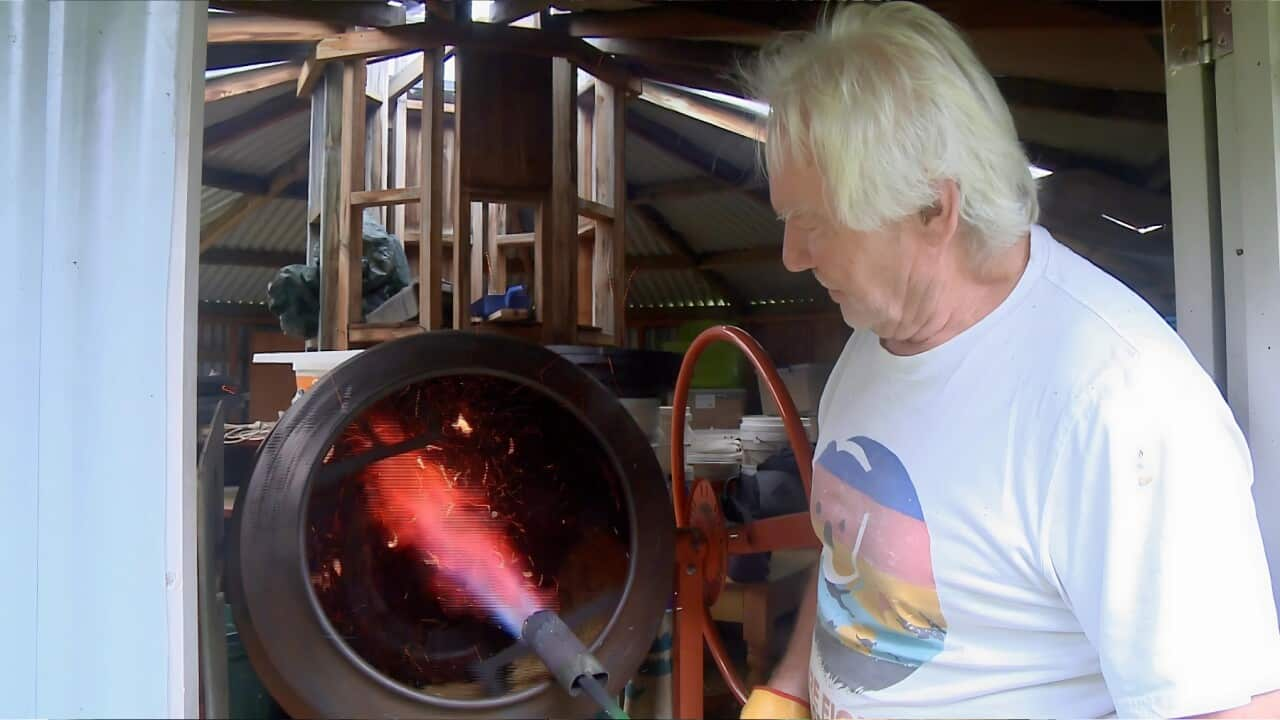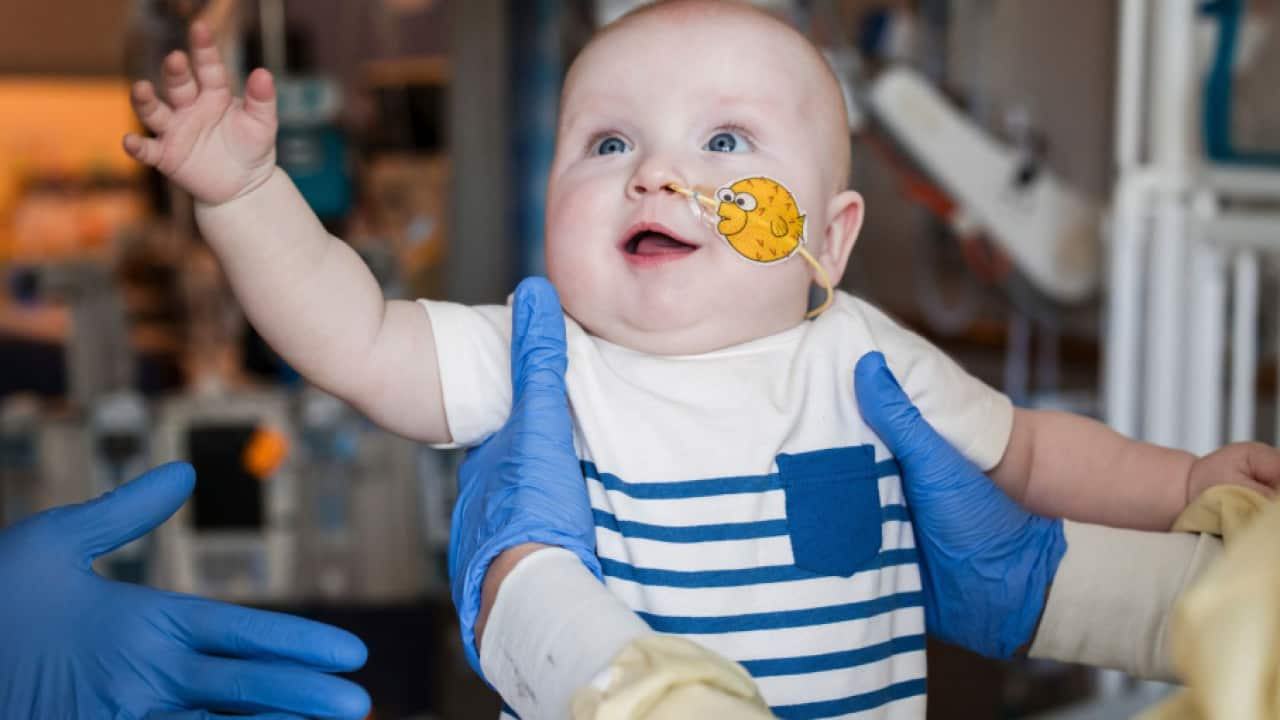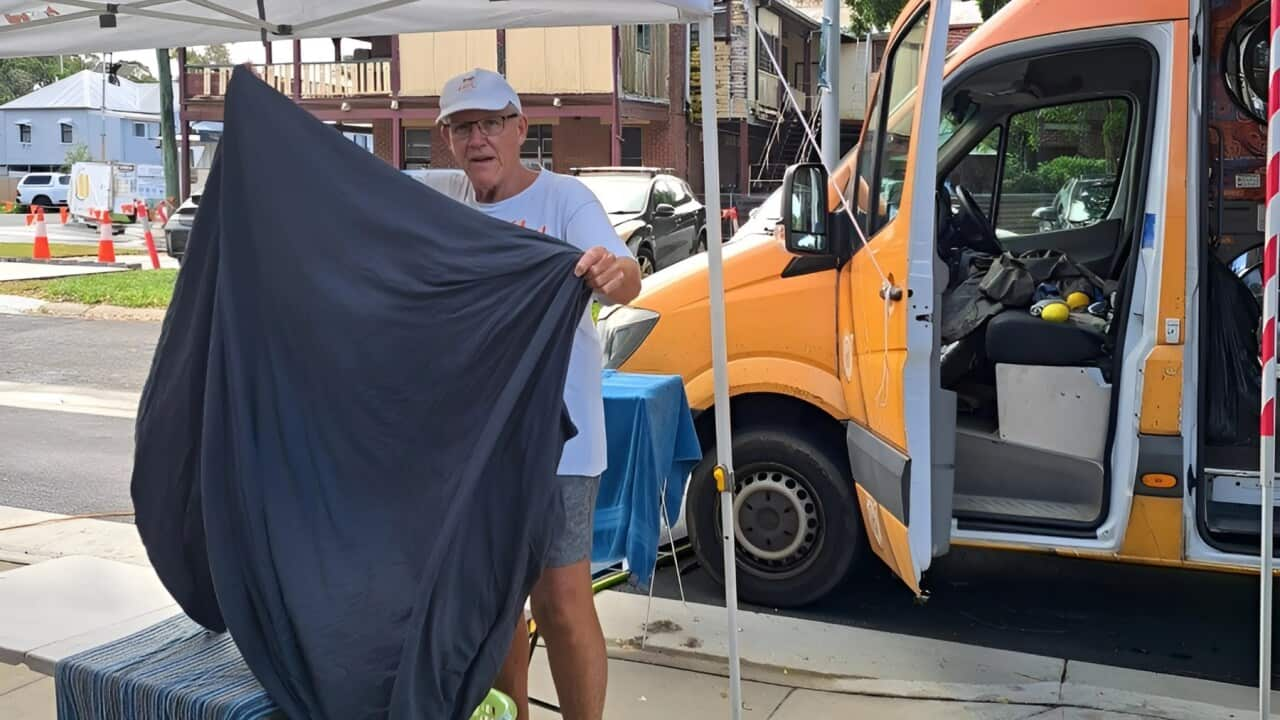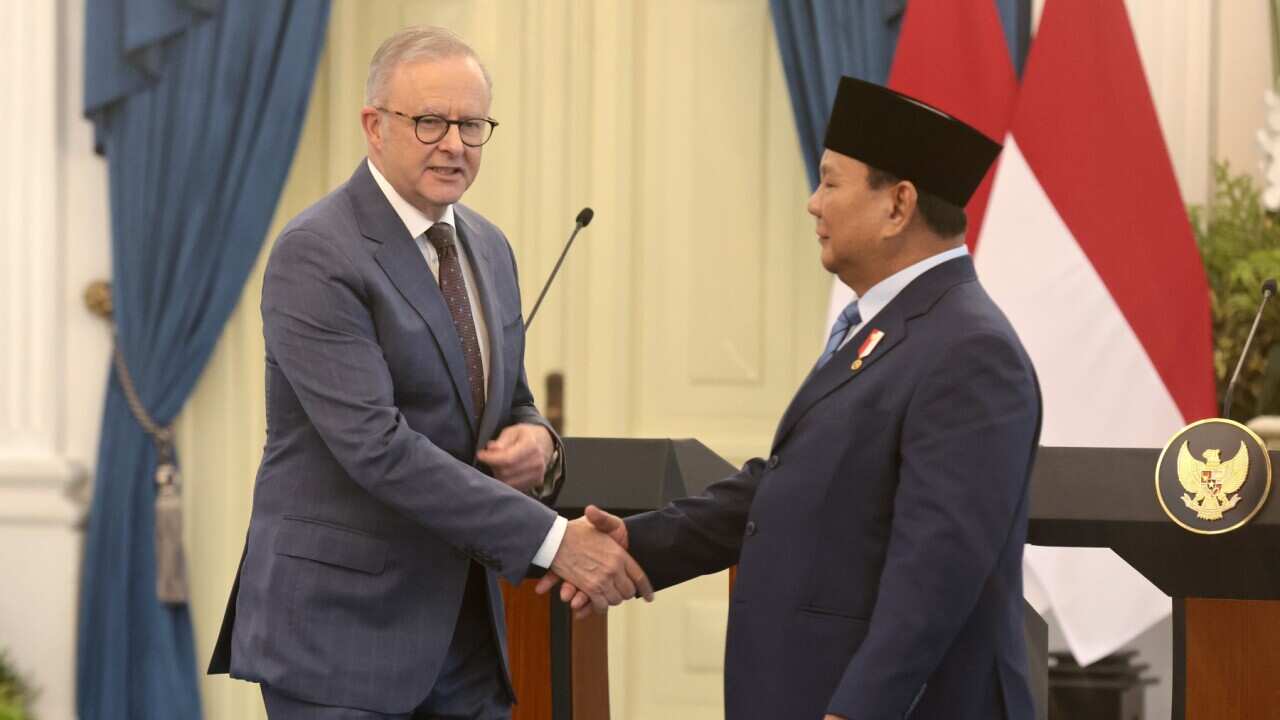TRANSCRIPT
It’s one reason local growers are busy planting, as ................ explains.
[[PACKAGE]]
That’s the sound of a gas-powered flame thrower firing into a rotating concrete mixer.
But it’s not concrete that’s going round and round - it’s coffee beans.
Born in Yugoslavia, Hungarian migrant Tibor Pinci has developed his own unique way of roasting green coffee beans at his small plantation in the hills above Coffs Harbour in Northern New South Wales.
He knows from the sound of the beans popping exactly when to stop - a few seconds too long, and the batch is spoiled.
“We call it an open roaster. So that one, tumbling it, and of course you go with the flame in there, and that involves a lot of precision, because it can be just overdone or underdone in a few seconds.”
There are around 500 coffee growers in Australia, many of them in northern New South Wales and Queensland.
As global coffee prices soar, small plantations like Tibor’s are multiplying.
He describes his as a ‘hobby farm’, but he’s still producing 500 kilograms of roasted coffee a year.
A baker by profession, his first attempts at growing coffee plants weren’t encouraging when they lived in Sydney.
“So coffee starts growing, comes winter, they die. So it happened about three times before I find out they don't like frost. So in the end, I got about a thousand little seedlings, and I brought it up here to Coffs, because my wife is from Coffs, so my mother-in-law is here. And I said, just look after them, water them once a week, and should be all right. So months later, we came back, and the trees were like a couple of foot tall.”
The process is quite laborious.
“I handpick all my cherries when they're beautifully ripe. We dry the cherries as well, because we're making the coffee berry tea out of that one, then the beans get dried and then before I roast, they get hulled it means the white shell comes off to get the green bean and then the green bean can be roasted.”
Tibor’s customers say they love the full aroma of his coffee with no bitterness.
So what’s the secret?
At Southern Cross University in Lismore, researchers are trying to figure that out.
Professor Tobias Kretzschmar says coffee growing is not new to Australia
“As far as I'm aware, coffee arrived pretty much with the first fleet and there's been attempts since to establish an industry and it's been thriving in the last 20 to 30 years.”
While producers are happy with the quality of the coffee, he says to make the industry more sustainable, they’re researching other varieties of coffee bush more suited to Australia.
“The problem they're having is they put their money on a variety that's much too vigorous for this environment. Keeps growing. It's one of the older varieties that's not dwarfing like the new ones, meaning every couple of years the growers will have to prune it. The tree is stressed, won't produce the next year. So a lot of work and yield losses affiliated with the old varieties.”
He says a key part of their research is finding out what makes Australian coffee different.
That’s where his colleague, Dr Ben Liu comes in:
“So we're doing analysis on coffee, trying to understand the flavour and the taste of coffee. At the same time, trying to actually create a chemical fingerprint for our coffee. That means when you have a good cup of coffee or bad cup of coffee, you don't know what's going on there. If you can do a chemical analysis, you know what's in there. So next time you can keep producing a good cup of coffee.”
He says coffees grown in Queensland and New South Wales have their own individual flavour characteristics.
“Can be a big difference from farm to farm. Just for example, some of the farms produce coffee. in the far north of Queensland. They produce more traditional coffee flavour, like a cocoa and nutty, those coffee flavour. Here, in the subtropical area in northern New South Wales or southeast Queensland, our coffee tend to actually smell and taste more like fruity and juicy.”
At Tibor’s farm, nothing is wasted.
He sells roasted beans online and at the Sunday morning market in Coffs Harbour.
And he makes tea from the dried berries, and flour from the hull of the beans, all full of healthy antioxidants.
As for the flavour - Tibor simply knows what his customers like:
“The coffee what we have here is just completely different from the ordinary big roasters, and that probably involves our climate, firstly, that we've got an amazing climate, gives a beautiful bean and of course the precision roasting with the little flame thrower. “













